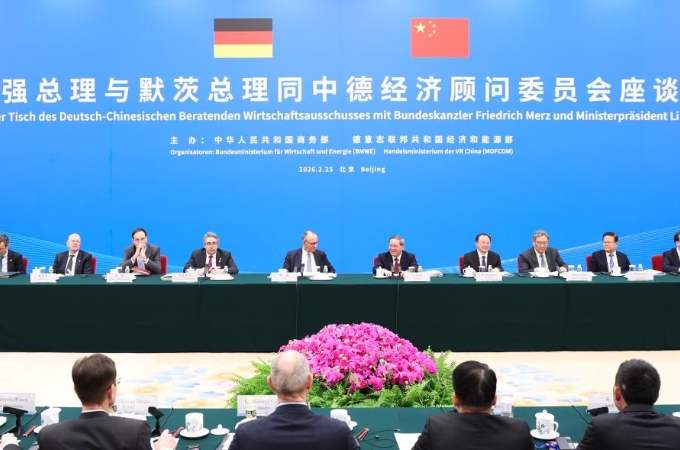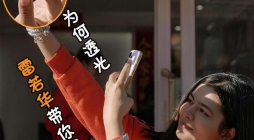Loving care helps talent emerge
Source: China Daily | 2022-10-14 | Editor:Ines
Mental health challenges mask a remarkable intelligence and a gift for translation, Ma Zhenhuan reports in Hangzhou.
For Jin Xiaoyu, who has had mental health issues for 30 years, parental love and his interest in translation are the most powerful weapons to fight the condition. His story, which was published recently in a newspaper, has ignited calls for greater attention and care for patients like him.
'My genius son'
"My son is a genius," said Jin Xingyong, Jin Xiaoyu's 86-year-old father, when he called Hangzhou Daily, a newspaper in East China's Zhejiang province, earlier this month to ask if the newspaper would be interested in publishing his son's story.
According to Jin Xingyong, Jin Xiaoyu, 50, had navigated a difficult path over the past few decades.
An accident left him blind in one eye but the then 6-year-old Jin Xiaoyu remained positive and even comforted his parents by saying one eye still gave him vision.
But life continued to pose challenges as he grew up. He developed abnormal behavior and resisted attending high school.
"He was transformed into a different person," said Jin Xingyong, the father, according to Hangzhou Daily. "He stayed in bed all day, saying nothing to us. And he became unstable and moody, losing his temper frequently. He toppled the refrigerator. It was the first time that he had developed violent behavior. Since then, he has destroyed television sets, washing machines, tables, cabinets and doors. That's why there is no television in our home now."
After a nearly three-year absence from school, Jin Xiaoyu suddenly decided to take the college entrance examination. Remarkably, he got a good grade, which pleasantly surprised his parents.
However, emotional problems resurfaced after a year at college and he dropped out of school again. But then Jin studied hard at home for two years and got a self-study diploma in English from Zhejiang University, one of the top universities in China.
His parents didn't realize that Jin was experiencing symptoms of psychosis until he tried to commit suicide twice. They sent him to hospital, where he was diagnosed with bipolar disorder.
"Xiaoyu has visited a mental hospital for treatment almost every year since 1992," said Jin Xingyong. "And I've read many books about mental challenges since then."
One book entitled Manic Depression and Creativity comforted the desperate father to some degree. It says that patients with bipolar disorder will cherish their lives with renewed vigor after surviving a suicide attempt, and some are creative geniuses, such as Ludwig van Beethoven, Vincent van Gogh and Ernest Hemingway.
"But I never supposed that Xiaoyu would be a genius," said Jin Xingyong, "For me and his mother, all we wanted was that he was alive and nothing else mattered."
Those were difficult years for the family, during which they needed to spend money on medical treatment and pay for damage to other property caused by Jin Xiaoyu. But the parents still tried their best to provide everything their son needed. They bought more than 200 books for him.
In 1993, Jin Xingyong spent 12,000 yuan ($1,900) on a computer for his son, even though he knew that it might be smashed. But the computer survived and became the key for Jin Xiaoyu to open the door to a world of translation.
Jin Xiaoyu used the computer solely to learn languages and watch English-language movies. He learned German and Japanese and hugely improved his English skills in just six years.
A positive spin was put on his life in 2010 when Cao Meizao, Jin Xiaoyu's mother, joined a college reunion and met a professor of Nanjing University who offered the son a translation job.
The Nanjing University Press sent eight short stories, written by Andres Barrett, an American author, and asked him to translate one of them as a trial. He finished the translation of Ship Fever, and requested to translate the other seven stories.
Jin Xingyong was worried about his decision but Jin Xiaoyu then revealed that he had read almost all foreign language novels in Zhejiang Library and he could do as well as the translators.
Jin Xiaoyu's translation skill was recognized by the press. In the following 10 years, he has translated 22 books, including novels and books about films, music and philosophy, in English, Japanese and German.
'Not a genius but a painter'
"I'm not a genius but a painter," said Jin Xiaoyu when he received interviews from Xinhua News Agency, after his story was circulated widely online and touched millions of readers. "Translation is like copying a painting. You should paint as similar to the original as possible. And no one knows the great efforts you've made.
"Before I got my first computer, I spent more than 10 years listening to English and Japanese programs on the radio. After that, I watched more than 60 Japanese TV dramas to learn Japanese," added Jin Xiaoyu. "I would read more than 20 original novels when learning a new language and looked up the dictionary every time I couldn't understand a word."
During his translation work of Andrei Tarkovsky: Elements of Cinema, he watched all the films directed by Tarkovsky and watched every frame mentioned in the book again and again.
Translation is challenging, but not well-paid, work. But he keeps doing it. For him, good language skills are a gift that he cherishes. Sometimes, he works seven to eight hours a day. To keep up his energy levels for the work, he spends an hour walking every day.
"I once told a friend at the hospital that since I'm not married, I regarded these books I translated as my sons and daughters. As for me, books can last for a thousand years, they can be passed on for generations to come," said Jin Xiaoyu in an interview with China Central Television.
He said he is currently working on the translation of a new book.
"I hope I can finish it within the next two to three years, and get it published when my father is 88 years old," he added.
Keep going
As a patient, Jin Xiaoyu was always silent and seldom expressed himself when he was not sick. But the 50-year-old man broke down when he learned of the death of his mother. Cao died in November when he was receiving medical treatment at a mental hospital.
"I got my first translation work because of my mother," Jin Xiaoyu said, adding that Cao played an important role in his work.
In his memories, Cao was a strict mother and always made decisions for him at critical moments in his life. "She encouraged me to learn English for the self-study diploma and asked me to apply for a library card at Zhejiang University.
"She said that a person should keep pushing the cart unless it is broken. That's why she kept encouraging me to go out instead of staying at home."
But Cao could no longer make decisions for her son after she got Alzheimer's disease in 2018.
"Xiaoyu showed filial piety to his mother," Jin Xingyong remembered. "He took care of her for three years, washing her face, carrying her to the bathroom every two hours, and buying shrimps, his mother's favorite food. And he never lost his temper with her. Every time the press sent new books translated by him, he would rush to her bed and put one on her hands."
Never apart
"My father is my secretary who helps me to contact the media and takes care of me," Jin Xiaoyu said.
The father and son now lead an ordinary life. Translation work takes up most of Jin Xiaoyu's time while Jin Xingyong is responsible for doing housework and cooking meals.
The relationship between them is also getting closer.
Films directed by Tarkovsky were recently shown in Hangzhou. As Jin Xiaoyu invited his father to go to the cinema, Jin Xingyong said, "I will go with you, though I probably will not understand it".
For Jin Xingyong, the happiest thing that happened recently was that a caring center for people with challenges offered accommodation for them, which means that he will never be apart from his son.
Jin Xiaoyu plans to finish the translation work of Arcades Projects, written by German author Walter Benjamin, before his father reaches 88 years of age and then stop translation work to learn Spanish.
More attention
Jin Xiaoyu's story has attracted much attention not only to his family but also to patients with mental challenges.
"He didn't accept any systematic education on language or translation at college but managed to translate many books while suffering from the disease. He is a genius," said Ying Yuanma, vice-president of Hangzhou Translation Association. Ying also invited Jin Xiaoyu to join in the association.
Huang Feihua, a taxi driver who established a volunteer team to offer free transportation services for senior residents in Hangzhou, called Hangzhou Daily and said that they would provide free services for Jin Xiaoyu's family.
Zhu Yufang, owner of a popular bookstore, said that they wanted to hold a book sharing activity for Jin Xiaoyu.
According to Hangzhou Daily, many readers also called to donate. But Jin Xingyong declined all material support.
Hu Shaohua, director of a mental health department at a hospital in Hangzhou, called for more love and tolerance for patients with bipolar disorder when they return to society.
Yu Yin contribute to the story.
Mental health challenges mask a remarkable intelligence and a gift for translation, Ma Zhenhuan reports in Hangzhou.
For Jin Xiaoyu, who has had mental health issues for 30 years, parental love and his interest in translation are the most powerful weapons to fight the condition. His story, which was published recently in a newspaper, has ignited calls for greater attention and care for patients like him.
'My genius son'
"My son is a genius," said Jin Xingyong, Jin Xiaoyu's 86-year-old father, when he called Hangzhou Daily, a newspaper in East China's Zhejiang province, earlier this month to ask if the newspaper would be interested in publishing his son's story.
According to Jin Xingyong, Jin Xiaoyu, 50, had navigated a difficult path over the past few decades.
An accident left him blind in one eye but the then 6-year-old Jin Xiaoyu remained positive and even comforted his parents by saying one eye still gave him vision.
But life continued to pose challenges as he grew up. He developed abnormal behavior and resisted attending high school.
"He was transformed into a different person," said Jin Xingyong, the father, according to Hangzhou Daily. "He stayed in bed all day, saying nothing to us. And he became unstable and moody, losing his temper frequently. He toppled the refrigerator. It was the first time that he had developed violent behavior. Since then, he has destroyed television sets, washing machines, tables, cabinets and doors. That's why there is no television in our home now."
After a nearly three-year absence from school, Jin Xiaoyu suddenly decided to take the college entrance examination. Remarkably, he got a good grade, which pleasantly surprised his parents.
However, emotional problems resurfaced after a year at college and he dropped out of school again. But then Jin studied hard at home for two years and got a self-study diploma in English from Zhejiang University, one of the top universities in China.
His parents didn't realize that Jin was experiencing symptoms of psychosis until he tried to commit suicide twice. They sent him to hospital, where he was diagnosed with bipolar disorder.
"Xiaoyu has visited a mental hospital for treatment almost every year since 1992," said Jin Xingyong. "And I've read many books about mental challenges since then."
One book entitled Manic Depression and Creativity comforted the desperate father to some degree. It says that patients with bipolar disorder will cherish their lives with renewed vigor after surviving a suicide attempt, and some are creative geniuses, such as Ludwig van Beethoven, Vincent van Gogh and Ernest Hemingway.
"But I never supposed that Xiaoyu would be a genius," said Jin Xingyong, "For me and his mother, all we wanted was that he was alive and nothing else mattered."
Those were difficult years for the family, during which they needed to spend money on medical treatment and pay for damage to other property caused by Jin Xiaoyu. But the parents still tried their best to provide everything their son needed. They bought more than 200 books for him.
In 1993, Jin Xingyong spent 12,000 yuan ($1,900) on a computer for his son, even though he knew that it might be smashed. But the computer survived and became the key for Jin Xiaoyu to open the door to a world of translation.
Jin Xiaoyu used the computer solely to learn languages and watch English-language movies. He learned German and Japanese and hugely improved his English skills in just six years.
A positive spin was put on his life in 2010 when Cao Meizao, Jin Xiaoyu's mother, joined a college reunion and met a professor of Nanjing University who offered the son a translation job.
The Nanjing University Press sent eight short stories, written by Andres Barrett, an American author, and asked him to translate one of them as a trial. He finished the translation of Ship Fever, and requested to translate the other seven stories.
Jin Xingyong was worried about his decision but Jin Xiaoyu then revealed that he had read almost all foreign language novels in Zhejiang Library and he could do as well as the translators.
Jin Xiaoyu's translation skill was recognized by the press. In the following 10 years, he has translated 22 books, including novels and books about films, music and philosophy, in English, Japanese and German.







